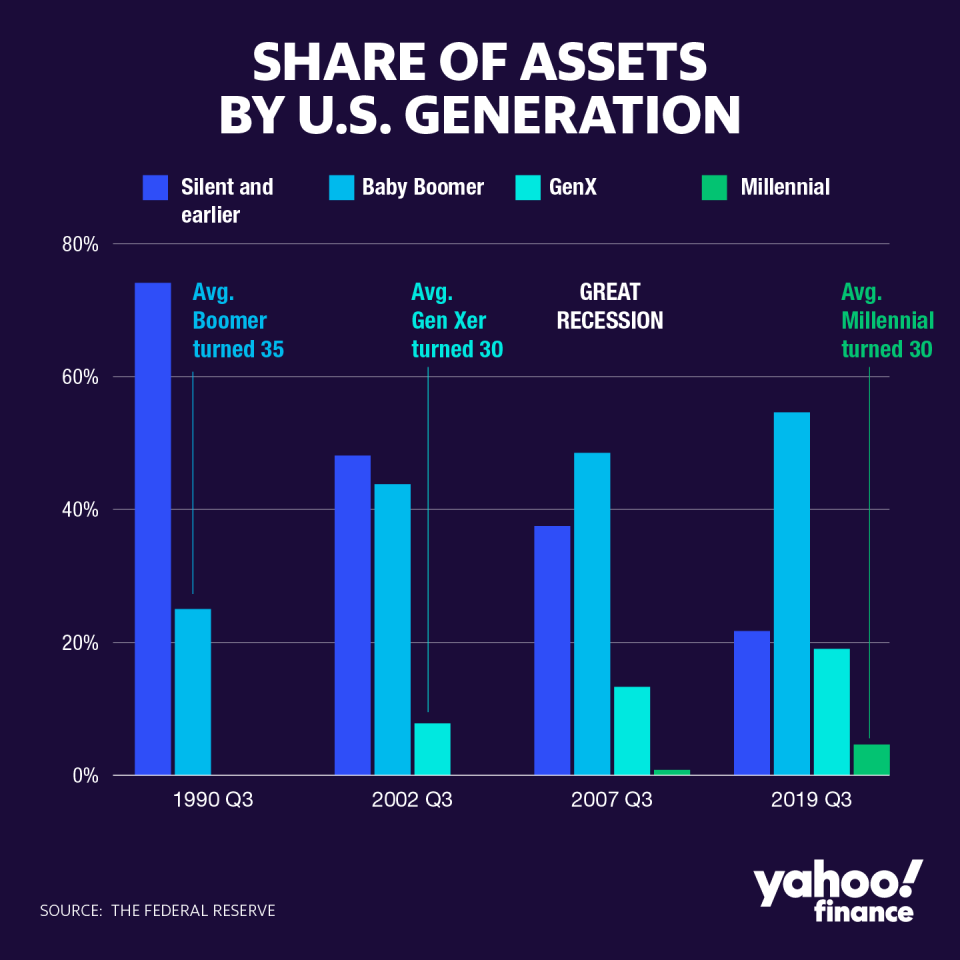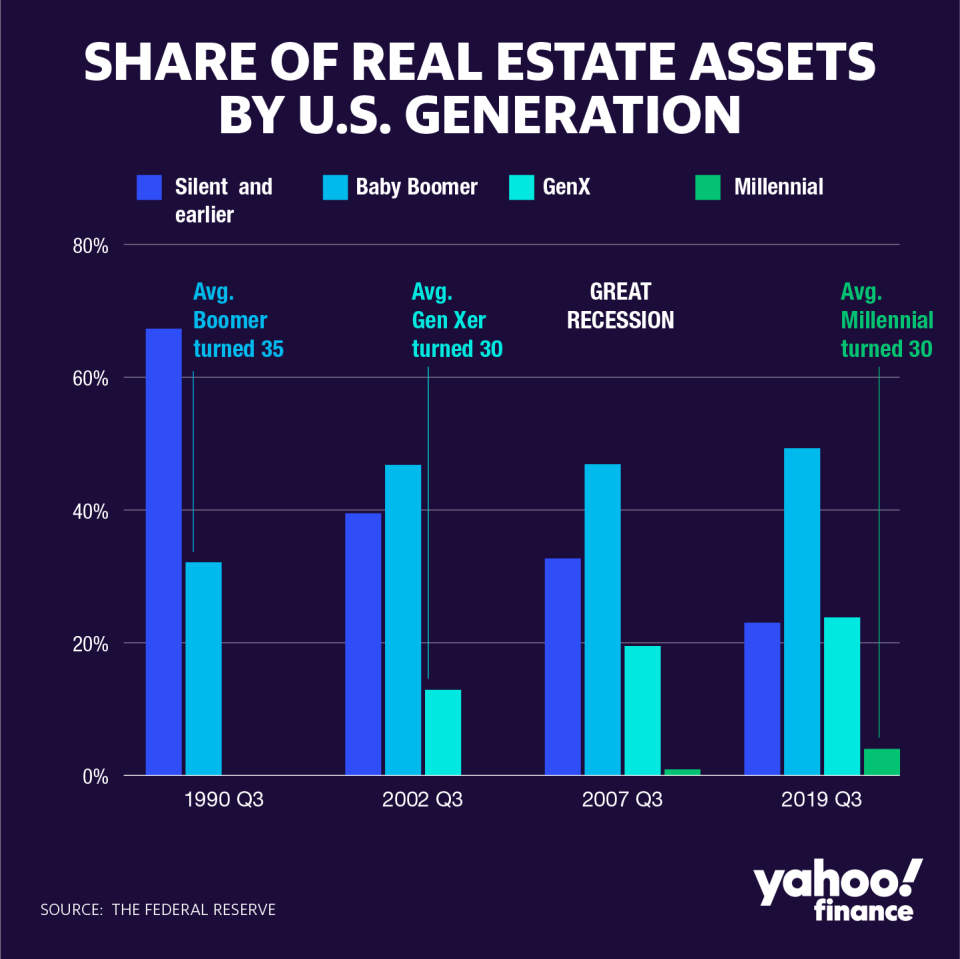Millennial wealth is still lagging behind previous generations at the same age
When it comes to owning real estate, investments, and consumer goods, millennials are far behind previous generations at the same or similar age.
Millennials owned only 4.6% of total U.S. assets in the third quarter of 2019, the year when the middle of the generation was turning 30, according to recent Federal Reserve data. That compares to 7.8% for Gen Xers at the same age in 2002 and 25% for baby boomers in 1990, when the median boomer was slightly older at 35. (Data for boomers at age 30 wasn’t available.)
Read more: How to save money for short-, mid-, and long-term goals
The disparity in some ways reflects cultural changes, and, to an even larger extent, it underscores costlier housing, growing student debt, and lower incomes among younger adults in the aftermath of the Great Recession.
“The most obvious [reason] is that they came of working age during the financial crisis,” Mark Zandi, chief economist at Moody’s Analytics, told Yahoo Money. “Timing, they say, is everything, and they had poor timing.”

A recession and its lingering effects
When the Great Recession began in 2007, the eldest millennials were graduating from college or just a few years into their careers. Unemployment soared during this time to as high as 10% in 2009, with the rate among young adults hitting 19.1%.
Salaries for jobs then — if one could be secured — were also subpar, and that has haunted millennials since.
“There’s a lot of research [that shows] your lifetime earnings are dependent on your first paycheck,” Zandi said. “If your first paycheck fell short, then it’s pretty hard to catch up.”

Center for Economic and Policy Research Older Chief Economist Dean Baker noted that older generations, specifically boomers, began their working lives straight out of high school and were able to accumulate more assets sooner, compared with a millennial who went to college and grad school and only started working at 25.
“[Those] relatively new to the labor force don’t have that many years behind them building wealth,” Baker told Yahoo Money.
Many millennials also chose to go back to graduate school, which created another financial burden later in life: student loans. The youngest of the generation, who went to college later, also borrowed more overall because education costs skyrocketed and their parents’ savings had been eroded during the recession.
That’s how student debt became a defining factor for the generation.
“The biggest thing in my view depressing wealth is student loan debt,” Baker said. “And that’s obviously a bigger burden than Gen X and baby boomers felt.”
Housing appreciation doesn’t help
One of the biggest assets that Americans own is their homes. There, too, millennials lag previous generations.
Millennials own 4% of all U.S. real estate at the end of last year, compared with 12.9% for Gen X when they were at the same age in 2002. Boomers held about 32% in 1990 when the middle of the generation was around 35.
Part of the decline reflects millennials marrying later in life. The median age in 2019 for marriage was 28 for women and 29.8 for men, up from 23.8 for women and 26.2 for men in 1989, according to the Census Bureau.
“Millennials are starting families at a later stage in their life and homeownership doesn’t generally happen until you start a family,” Zandi said.
Other factors outside of the generation’s control — such as rising home prices and stagnant wages — are also driving this change in real estate ownership among millennials.
“If you compare 2019 to 1989, you’ll get that house prices are 20% higher adjusted for inflation and you’ll need a 20% larger down payment,” Baker said.

Slower to invest
Millennials also hold a smaller portion of all investments in stocks and mutual funds.
In 2002, baby boomers in their mid-30s held almost 38.6% in corporate equity and mutual fund investments. But in 2019, millennials of the same age control just 1.6% of this investing pie — not including retirement funds.
Zandi said millennials may be avoiding investing as much as their parents because they’ve been scarred by the financial crisis, which sunk the stock market.
But Baker thinks it’s simpler than that.
“I think it’s more that [millennials] don’t have the wealth to invest,” he said.
Dhara is a writer for Yahoo Money. Follow her on Twitter @dsinghx.
Read more:
Gen Z more than doubles its presence in housing market, study finds
States where home prices increased the most and the least in 2019
Follow Yahoo Finance on Twitter, Facebook, Instagram, Flipboard, SmartNews, LinkedIn, YouTube, and reddit.

 money
money 